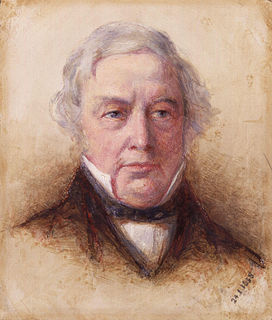A Quote by Joseph Kastein
The Greeks had had vast experience in this world, their imagination had been fertile and they had created much...that, in these circumstances, they should fall in with a people imbued with a calm and sometimes stolid and bucolic certainty where its spiritual possessions were concerned, barbarians with no sculpture or breeding, necessarily tinged their contempt with impotent wrath. The inevitably logical result of this attitude on the part of the Greeks was the growth of anti-Semitism, of hatred of the Jews.
Quote Topics
Anti
Anti-Semitism
Attitude
Barbarians
Been
Breeding
Calm
Certainty
Circumstances
Concerned
Contempt
Created
Experience
Fall
Fertile
Greeks
Growth
Had
Hatred
Imagination
Inevitably
Jews
Logical
Much
Necessarily
Part
People
Possessions
Result
Sculpture
Should
Sometimes
Spiritual
This World
Vast
Were
World
Wrath
Related Quotes
Eratosthenes was the director of the great library of Alexandria, the Centre of science and learning in the ancient world. Aristotle had argued that humanity was divided into Greeks and everybody else, whom he called barbarians and that the Greeks should keep themselves racially pure. He thought it was fitting for the Greeks to enslave other peoples. But Erathosthenes criticized Aristotle for his blind chauvinism, he believed there was good and bad in every nation.
The Jews had a love-hate relationship with the Greek culture. They craved its civilization but resented its dominance. Josephus says they regarded Greeks as feckless, promiscuous, modernizing lightweights, yet many Jerusalemites were already living the fashionable lifestyle using Greek and Jewish names to show they could be both. Jewish conservatives disagreed; for them, the Greeks were simply idolaters.
The history of governmentally established religion, both in England and in this country, showed that whenever government had allied itself with one particular form of religion, the inevitable result had been that it had incurred the hatred, disrespect and even contempt of those who held contrary beliefs.
Anti-Semitism is the hatred that never dies. Violence that begins with the Jews never ends with them. All of this is true. What's also true is that anti-Semitism is the oldest hatred in the world because individual people have sustained it in every generation. It cannot be defeated until we look these people and their ideologies in the face.
There were times when it appeared to Dorian Gray that the whole of history was merely the record of his own life, not as he had lived it in act and circumstand, but as his imagination had created it for him, as it had been in his brain and in his passions. He felt that he had known them all, those strange terrible figures that had passed across the stage of the world and made sin so marvellous, and evil so full of subtlety. It seemed to him that in some mysterious way their lives had been his own.
Like most places, America has always had potent strains of anti-Semitism - crude and polished, K.K.K. and country club. But unlike many places, we have always had important strains of philo-Semitism as well; there is a long American tradition, with both Protestant and Enlightenment roots, of really liking Judaism and the Jews.
I had an incredibly full life with my imagination: I used to have all sorts of trolls and things; I had a wonderful world around my toys and invented people. I don't mean I had imaginary friends; I just had this big imagination thing going on. I didn't need any imaginary friends, because I had so much other stuff going on.
Greece, alone, is in a very vulnerable position. If the Greeks had had support from progressive left and popular forces elsewhere in Europe they might have been able to resist the demands of the Troika, but they had almost no support. Not even from Portugal, Spain, or other left forces. They were left alone.
We're living in a Dark Age of macroeconomics. Remember, what defined the Dark Ages wasn’t the fact that they were primitive — the Bronze Age was primitive, too. What made the Dark Ages dark was the fact that so much knowledge had been lost, that so much known to the Greeks and Romans had been forgotten by the barbarian kingdoms that followed.
Experts in ancient Greek culture say that people back then didn't see their thoughts as belonging to them. When ancient Greeks had a thought, it occurred to them as a god or goddess giving an order. Apollo was telling them to be brave. Athena was telling them to fall in love. Now people hear a commercial for sour cream potato chips and rush out to buy, but now they call this free will. At least the ancient Greeks were being honest.






































